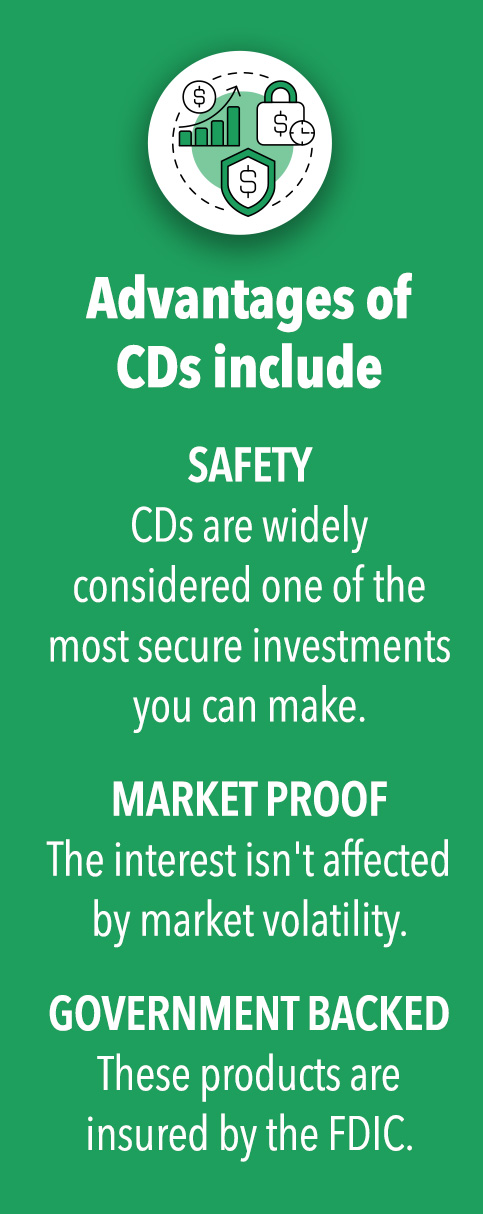Wealth Management Tips for Diversifying Your Portfolio
Adding a CD to your financial planning strategy could help you improve earnings over the longer term.
 iStock
iStock
A diversified portfolio is an important aspect of wealth management. This financial planning strategy is focused on investing in various types of assets—stocks, bonds, mutual funds, real estate, etc.—with the goal of optimizing the potential for reward and minimizing the opportunity for risk.
Read on to learn more about finding a productive mix of financial products for your investment goals.
A best-practices portfolio management strategy
Wealth management experts say that investors should have a healthy mix of financial products, investment amounts and term rates. For example, a savings account or money market account provides immediate liquidity but often comes with low interest rates, while a 401(k) account is designed for longer-term results and has fluctuating rates.
Other longer-term investment options include:
- Growth stocks: This product can offer high returns—but often with higher risk.
- Stock and bond funds: These provide a collection of investments from a variety of companies and issuers.
- Real estate: The investment entry point is often high, but a real estate investment allows you to own a piece of a tangible asset.
- Roth IRA: This investment grows tax-free, but a withdrawal of any account earnings before you’re 59.5 years old and before the account is 5 years old will come with a 10% penalty.
How do CDs compare to savings accounts?
Get Answers >>The role of CDs and the best rates
Certificates of deposit, more commonly known as CDs (some might use the term bank CDs), are another type of financial product that can be longer-term. CDs are designed to provide earnings above what you’d receive from a regular savings, money market or checking account.
With a CD, you agree to invest your money for a specific amount of time—usually ranging from three months to five years or more—in exchange for a guaranteed higher interest rate. This type of investment is best for individuals who don’t need liquidity. Typically, the longer you agree to invest the money in a CD, the higher the interest rate.
Some of the advantages of CDs are that they are:
- Safe. CDs are widely considered one of the safest and most secure investments you can make.
- Market-proof. The interest that you earn is guaranteed and not affected by market volatility.
- Government-backed. These products are insured by the FDIC and backed by the federal government.
Whether your financial planning goal is safety, security or liquidity, the right blend of investments can help you attain it.
